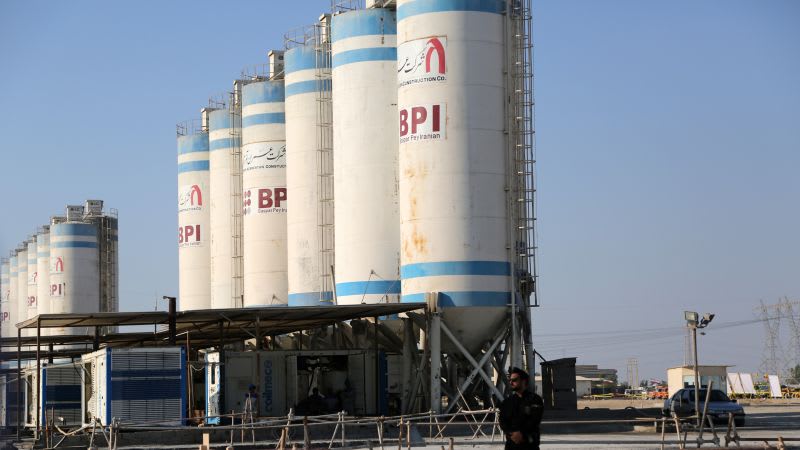Iran is seeking Russia’s help to bolster its nuclear weapons program, US intelligence officials believe, as Tehran looks for a backup plan should a lasting nuclear deal with world powers fail to materialize.
Ukrainian President Volodymyr Zelensky suggested last week that Iran was looking to Russia for assistance with its nuclear program in exchange for the military support it has given to Moscow, but the intelligence obtained by the US does not indicate the existence of an explicit quid-pro-quo, sources briefed on the matter said.
The new intelligence suggests that Tehran has been asking Moscow for help acquiring additional nuclear materials and help with nuclear fuel fabrication, sources said.
The fuel could help Iran power its nuclear reactors and could potentially further shorten Iran’s so-called “breakout time” to create a nuclear weapon.
Experts emphasized to CNN, however, that the nuclear proliferation risk varies depending on which reactor the fuel is used for.
And it is also not clear whether Russia has agreed to help — the Kremlin has long been outwardly opposed to Tehran obtaining a nuclear weapon.
The Iranian proposal has come amid an expanding partnership between Iran and Russia in recent months has seen Iran sending drones and other equipment to Russia for use in its war in Ukraine, and Moscow potentially advising Tehran on how to suppress a protest movement sweeping Iran, US officials said.
Iran’s overtures to Russia appear at least partly motivated by a belief among senior Iranian officials that a new nuclear deal either won’t be revived or, if it is, won’t last.
Sources briefed on the intelligence told CNN that Iran’s concerns appeared most acute over the summer, as it appeared to be closing in on a new nuclear deal with the US and other world powers known as the P5+1 — a group that includes Russia.
Iran’s fear was that a future administration might pull out of a deal, as the Trump administration did in 2018, so it sought a side deal with Russia that would allow it to reconstitute its nuclear program quickly if necessary.
Asked whether the growing Iran-Russia partnership was a factor in the nuclear deal talks getting derailed, a senior administration official told CNN: “Obviously, side deals between Russia that fundamentally undermined the structure of the 2015 agreement would be a serious concern and further reduce the possibility of a return to the agreement.” The official declined to comment specifically on intelligence assessments.
James Acton, co-director of the Nuclear Policy Program at the Carnegie Endowment for International Peace, said he does not believe Iran necessarily needs the help — but that they do have an incentive, namely to produce the fuel more quickly, cheaply, and on a shorter timeline.
The Iranian Mission to the UN and the Russian Foreign Ministry did not return requests for comment.
Read the full story here:
